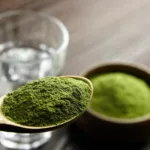Is Almond Milk Safe for GERD? – Everything You Need to Know
Dealing with GERD (gastroesophageal reflux disease) can be a pain, especially when you’re trying to figure out what you can and can’t eat or drink. If you’ve been eyeing almond milk as a potential alternative to dairy, you’re not alone. Let’s break it all down and see if almond milk is a good choice for GERD.

What Is GERD?
First, let’s cover the basics. GERD is when stomach acid flows back into your esophagus, causing discomfort like heartburn, regurgitation, and that unpleasant burning sensation. If you’ve got GERD, your diet matters—a lot. Certain foods and drinks can make symptoms worse, so knowing what works for you is key.
Is Almond Milk Good or Bad for GERD?
Now, the big question: is almond milk safe if you have GERD? Short answer: yes, it can be! Almond milk is generally considered GERD-friendly because it’s non-dairy, low in fat, and alkaline. But, as with most things, it depends on the individual.
Why Almond Milk Can Be GERD-Friendly
- Low in Fat: High-fat foods can relax the lower esophageal sphincter (LES), the muscle that keeps stomach acid where it belongs. Almond milk is naturally low in fat, making it a safer choice.
- Alkaline Properties: Almond milk has a slightly alkaline pH, which might help neutralize stomach acid. This is a big plus if you’re looking for something soothing.
- Non-Dairy Alternative: Dairy is a common trigger for GERD symptoms in some people. Switching to almond milk can help you avoid potential flare-ups.
Things to Watch Out For
Not all almond milk is created equal. Some brands add sweeteners, flavors, or preservatives that could irritate your stomach or worsen reflux. Always check the label and opt for:
- Unsweetened Almond Milk: Added sugars can be a trigger. Stick to the plain stuff.
- Minimal Ingredients: Look for almond milk with simple ingredients to avoid additives that could upset your stomach.

How to Use Almond Milk for GERD
Here are some easy ways to incorporate almond milk into your diet without triggering GERD symptoms:
- Morning Smoothies: Blend unsweetened almond milk with GERD-friendly fruits like bananas or melons. Skip acidic fruits like oranges or pineapples.
- Cereal or Oatmeal: Swap regular milk for almond milk in your breakfast.
- Coffee or Tea: If you’re still drinking coffee (a GERD trigger for some), almond milk can be a non-dairy creamer alternative. Just be mindful of the acidity in coffee itself.
Other Non-Dairy Alternatives
If almond milk isn’t your thing, there are other non-dairy options to explore. Each has its pros and cons for GERD:
- Soy Milk: Another low-fat option, but some people with GERD find it too heavy.
- Oat Milk: Creamy and delicious, but check for added sugars.
- Coconut Milk: Higher in fat, so it might not be ideal for GERD.

Tips for Managing GERD
Drinks like almond milk are just one piece of the puzzle. Here are some additional tips to keep GERD symptoms under control:
- Eat Smaller Meals: Large portions can put pressure on your stomach.
- Avoid Trigger Foods: Common culprits include spicy foods, fried foods, and caffeine.
- Stay Upright After Eating: Don’t lie down right after a meal—it can make reflux worse.
- Keep a Food Diary: Track what you eat and how it makes you feel. Over time, you’ll learn what works for you.
Conclusion
So, is almond milk safe for GERD? For most people, yes—it’s a great alternative to dairy and can be part of a GERD-friendly diet. Just stick to unsweetened varieties, pay attention to your body’s reactions, and enjoy it in moderation. Managing GERD is all about finding what works for you, and almond milk might just be a great addition to your routine!
Appendices
FAQs
- Is almond milk alkaline or acidic? Almond milk is slightly alkaline, which may help neutralize stomach acid and soothe GERD symptoms.
- Can flavored almond milk worsen GERD? Yes, flavored almond milk often contains added sugars, which can trigger reflux in some people.
- How much almond milk can I drink with GERD? Start with small amounts to see how your body reacts. For most people, a cup a day is safe.
- Is homemade almond milk better for GERD? Homemade almond milk can be a great option because you control the ingredients. Just keep it unsweetened and simple.
- What are other GERD-friendly drinks? Besides almond milk, try herbal teas (like chamomile), water, or diluted aloe vera juice.
References
- Smith, J. (2023). Dietary Approaches to Managing GERD. Journal of Gastrointestinal Health.
- National Institute of Digestive Diseases. (2024). GERD-Friendly Food Alternatives. NIH Publications.
- Jones, M. (2021). Understanding GERD and Alkaline Foods. HealthLine.
- American Gastroenterological Association. (2022). GERD: Causes, Symptoms, and Management.
- WebMD. (2023). Foods to Avoid with GERD.
Disclaimer: This article is for informational purposes only and should not replace professional medical advice. Always consult with your healthcare provider for personalized guidance.

Camellia Wulansari is a dedicated health writer specializing in digestive disorders, contributing valuable insights and information to the health and wellness community. With a passion for promoting well-being through knowledge, Camellia serves as a reliable source of expert content on healthusias.com.













